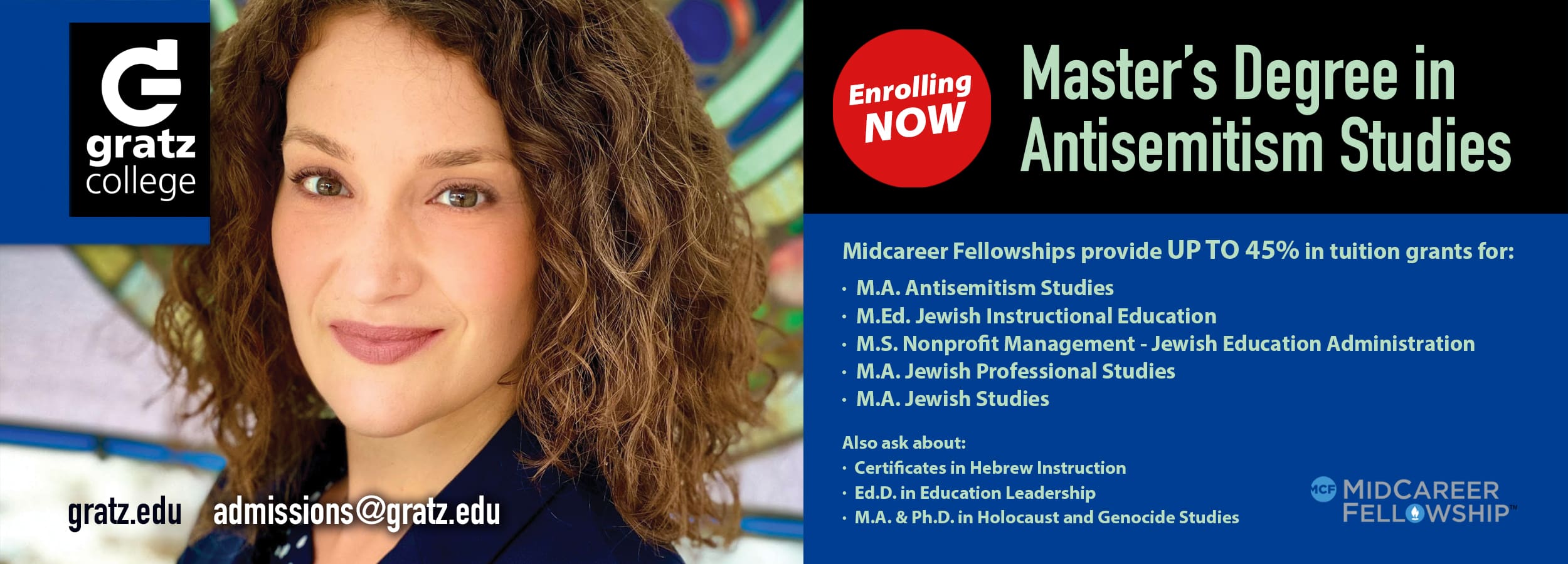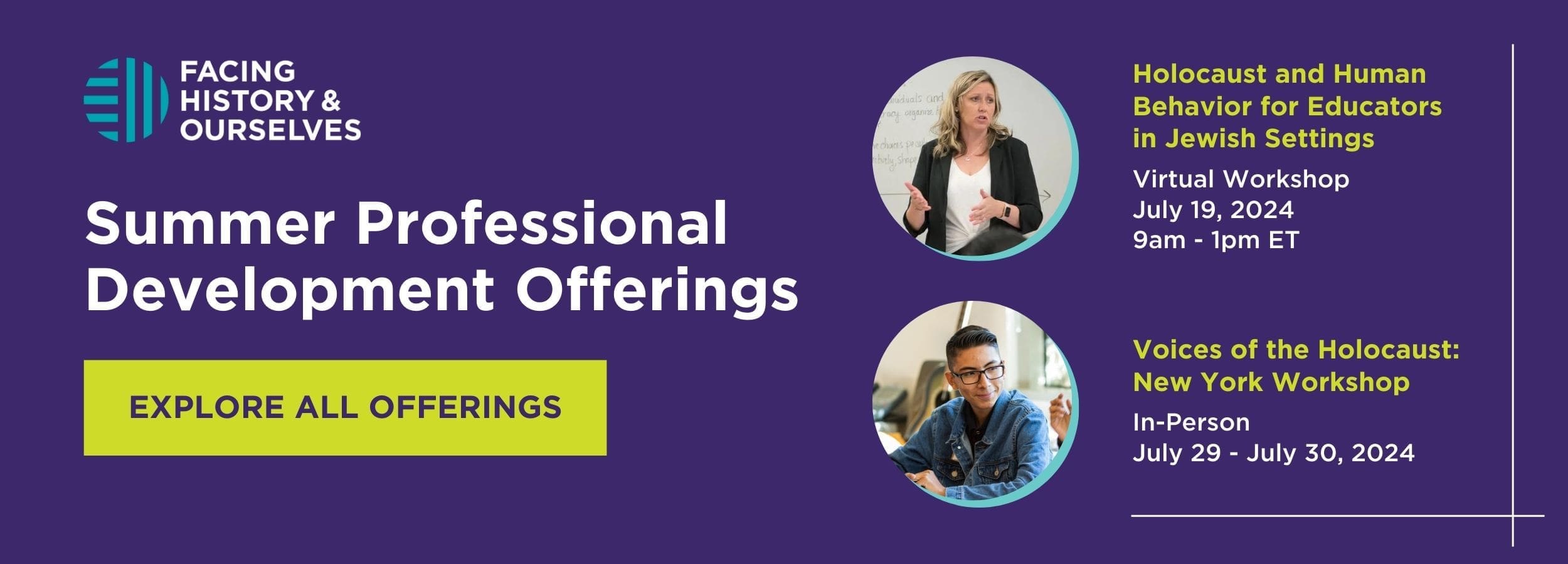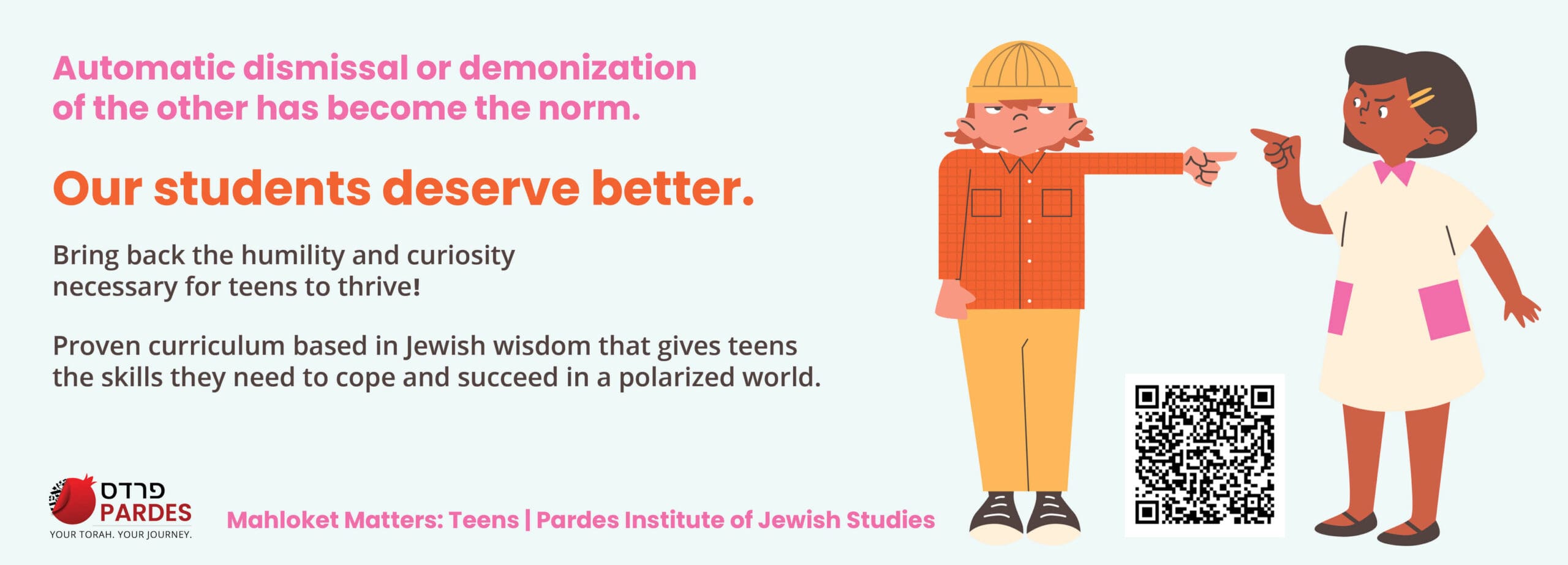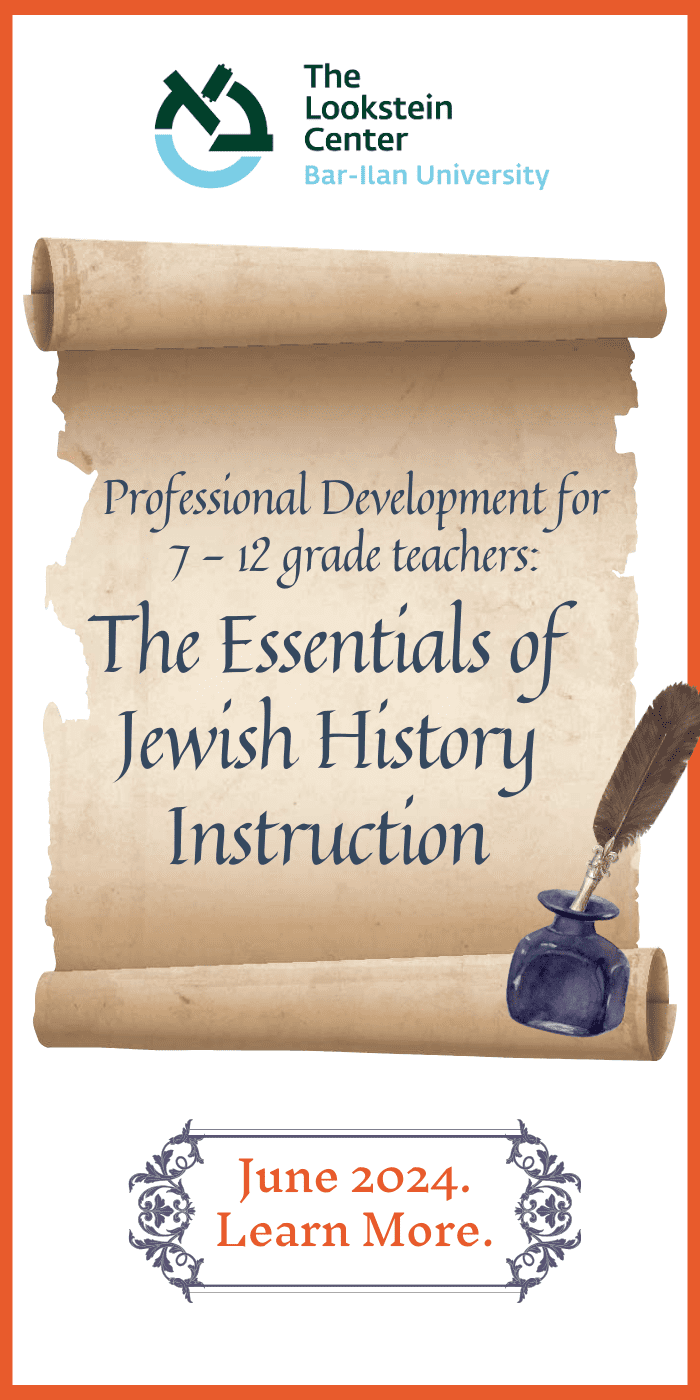Cultivating Individuality and Cultivating Belonging: an Interview with CB Neugroschl
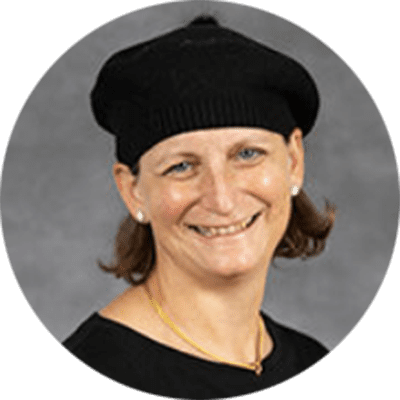
CB Neugroschl is an educator with over twenty- five years of pedagogic, curricular, and administrative experience in both Judaic and General studies. Mrs. Neugroschl serves as Head of School at Ma’ayanot Yeshiva High School for Girls. Previously she served as Head of School at Samuel H. Wang Yeshiva University High School for Girls (Central) and as Assistant Principal and Co-Director of General Studies at SAR High School. She studied at Michlala College for Women earned her B. A. at Stern College for Women, continued her studies at Yeshiva University’s Bernard Revel Graduate School of Jewish Studies, and received her M.A. in Near Eastern Languages and Civilizations from Harvard University.
Jewish Educational Leadership: In what way do you see diversity in your school as a challenge and in what way do you see it as an opportunity?
CB Neugroschl: Diversity is both a deeply meaningful value and also a pop language word that means many different things to different people. When I was a Jewish philosophy teacher, diversity in our curriculum was about the relationship between Jews and non-Jews and about how we understand Hashem’s mission for both. When I speak about diversity today here in Teaneck, I recognize that we are talking about a very tiny slice of the diversity pie. The reality is that we are an all-girls Orthodox high school serving a fairly homogenous community. Of course, there are going to be nuanced differences, but the bottom line is that all those differences are within a fairly narrow band on the spectrum. So, here’s some background on where diversity is important in our context.
Many teenagers, and girls in their own unique way, struggle with differentiation and individuation and trying to find who their unique self is. Nowadays, there’s a lot of play for authenticity, and I think that our kids actually really struggle with experiencing tension between socially defined authenticity and true authenticity. That gets complicated in our community, especially during the high school years, because there’s also a strong emphasis on doing the same things and looking the same way.
So diversity, to me, means how do we help kids find their own individual strengths even while cultivating a sense of belonging within our community? As a halakhic community that is performance-based, we learn to care about precision, and we strive to increase both our performative aspects of mitzvot and also the authentic internalization of the meaning and mission of Torah and mitzvot; that can be hard! It’s likely that as we strengthen the impulse to belong to an inspiring community of Torah observance our students may struggle to simultaneously know and value their own unique identities. This is our form of “diversity” training; it’s not the diversity focused on accepting everyone else who is different, rather it’s the diversity focused on learning to accept the difference that you may feel within yourself. This lends one the strength to be authentic and to know that it’s not so scary to be different. And actually, when we all say that we really want our children to find their strengths and develop a strong sense of their purpose, we need to give them permission to be different. We need to teach them that if they are being authentic to who they truly are, then there is a joy and pride in being different.
Often our parents and our community send a very different message; that diversity is scary. They might support the idea of diversity intellectually, but from a religious perspective and from a communal perspective, behaviorally, most parents really just want their kids to be like them—and diversity can range from worrisome to terrifying. Kids pick up on that message and know it well. So that’s the challenge. But that’s also the opportunity. My objective, in a high school setting, is to help create the environment, the opportunities, and the experiences for our students to learn, to strive for personal growth, and become the best versions of themselves. That essentially requires that they’re okay with being different from the person sitting next to them, and from their parents, and internalizing that “difference” might be a little scary, but it is worth it.
So, I smile when people talk about diversity, because for me it’s not about who’s sitting in the seat next to you, it’s about learning how to be yourself. If you feel safe being yourself then the person sitting next to you who is different is less challenging.
What do you do when you have students who clearly stand out as being very different from all the others, a different order of difference?
We work really hard to be a school with mission-aligned families, and an important part of our mission as an Orthodox school is a deep commitment to halakhic practice and personal growth in avodat Hashem. In our community, which has established halakha as an important ground floor, what we learn and explore is all rooted in our communal halakhic norms. At the same time, we embrace the importance of students personalizing what they learn as part of shaping their personal authentic selves. We actually have students here from eighteen different communities, and all of the parents want to know that it is safe to assume that their child can go to a friend’s house for Shabbat, or share other socially important experiences, without worry, and we need to be able to provide those assurances. Within that narrow slice of families who observe halakha, there are families for whom coed camps are out of the question and others for whom coed camps are really important; we have lots of different approaches to hair covering going on; we have a range of definitions of tzniut amongst the families in our school. So, within our very narrow slice of the communal pie, we are actually more diverse than many of the other all-girls schools serving this region. And still, what’s amazing is that our students all grow religiously in this environment because we understand that girls need a space where differences actually allow them to make real choices and strengthen their commitments authentically.
Here’s what happens. Within our school community, our students, from families that only want coed camps or won’t ever attend coed camps, over time recognize that those external markers are not necessarily indicative of who will daven with more kavana or who will go to minha on Shabbat afternoon or who has a greater commitment to halakha or which of those school friends will be a better influence or inspire the other religiously. It really works. People get to see others and really respect who they are authentically and religiously; it totally shakes up what people think performance-based religioun looks like. That’s a huge win.
what happens when a kid is really out of bounds, like the student who is not Shomeret Shabbat?
For starters, there is a behavioral expectation about what happens in school and at home; our commitments to halakha and halakhic norms are non-negotiable. For students struggling, we work to create a sense of possibility, of growth, and we try really hard to not criminalize bumps along the road—what we might call normal teenage behavior of asking questions, expressing a lack of faith, or even saying that I’m not keeping halakha like my parents or others are. The truth is, once a student says that, she is displaying her trust in her teacher or guidance counselor, and we see that as a sign of reaching out, of seeking guidance rather than of rebellion. We privilege it as a trust. And this is true about many issues that we see, like students who struggle with tefilla. We treasure the fact that students feel safe sharing their struggles, knowing that they will not be rejected or outed even if they are not toeing the line, and they appreciate that we see this as an important part of their growth process.
We just had a Shabbaton and chose to focus the theme on reaching out to Hashem, Lishmo’a el ha’rina ve’el ha’tefilla. We were a little nervous about it because it’s one thing to talk about these things in a class but it’s another to be in a Shabbaton where we are invested in reaching everyone and aim for their full engagement for the entire Shabbaton. This theme, we thought, might risk losing some students’ attention. How could we expect everyone to talk about speaking with God when many might be mad, or disconnected, at the moment (in the middle of the war)? The truth is, our students were fully present because they knew that we were all there to learn and grow together. They could trust us. We sat and talked. The student who was not currently davening was able to hear from a teacher that crying is also considered tefilla. There was no expectation that her behavior, or experience, would be identical to that of others and that that would affect her standing in the eyes of other students or teachers.
If we are really committed to these kids and to their growth, then the way they will experience that commitment the most is in the moments when they’re not perfect, whether academically or religiously. With the very rare exceptions—such as when someone’s behavior puts the community at risk or is hurtful, and that’s typically around drugs and alcohol (and even then, we’re going to start off therapeutically)—we are going to begin from a position of helping the student grow through the difficult times. Now that might include that they can’t be in school, and not everyone receives that as the result of our love and concern for them, but it really is. Our Dean of Students has led this effort of building a culture where all of us learn how to love kids in those hard moments. She exemplifies that commitment for our students and she is a model for both students and teachers.
Crisis among teenagers is almost inevitable, and it is really difficult to build relationships in the middle of a crisis—those relationships have to be in place already. If the strongest thing that can help teens through a crisis is relationships, you need to build those relationships in advance as part of the bedrock. So our understanding of diversity is building the students’ sense of self in a supportive environment of relationship building, and that’s what we rely on when students are feeling disconnected from the community, our practices, or themselves.
When does accommodating or encouraging diversity become difficult, educationally, parentally, or on the lay leadership level?
I actually think the most common challenge in diversity is not about hashkafa or mitzvot. We always have robust discussions around heated contemporary issues such as women in Orthodoxy and we will always welcome debate, questions, complaints, etc. Additionally, we have a very strong Zionist curriculum and there are always students who want us to spend more time focusing on the “dual narratives” perspective of this history. We do include the Palestinian claims—not because we want them to consider adopting them, but rather—because we think that it is important that they are educated and prepared to respond to anti-Zionist claims with historical facts and insights.
More challenging is how our diversity gets expressed in the different academic abilities of our students. That’s not always easy. Since our community has high expectations and the explicit hierarchy of values places academic achievement pretty high on the scale for personal accomplishments. That might be for economic reasons and getting into selective colleges, or for ideological reasons as an extension of our commitment to talmud Torah. Whatever the root cause, our community is very much a meritocracy, and since we value learning and intellectual achievements we haven’t actually figured out how to properly, really, embrace kids of all abilities and make sure that our resources are dedicated to them. Our community must send these children a clear message that they are valued and appreciated and not just in school as a default place to bide their time until real life begins. As an educational institution, that kind of diversity is the most challenging because it flies in the face of core communal values of intellectualism and learning. We’ve worked really hard with our resources, our Learning Center, our guidance department, and a full embrace of co-curricular programming to make sure that each student regardless of their academic ability has a place to shine and knows that they are seen and valued. Even from a budgetary perspective, we’ve dedicated so much to ensure that the culture in the school is one that encourages kids to realize that they do not have to be perfect, that they are valued not only by their scores, that this thing called leadership is attainable even if you’re not in the top class or the captain of the basketball team. In emphasizing each student’s place to shine we are challenging the assumptions of our meritocracy both in our local community and in North America. We’ve created a countercultural assumption here that our daughters matter and that every single one has a spark—they may not know it yet, but we know it exists—and we’re going to help them figure out what it is. That is the most common challenge that we’re encountering and that we’re working to solve.
Let’s talk about the staff. To what extent does ideology play a role in staffing? How do you bring the staff into the ideological messages of the school?
Having a mission that you announce and talk about a lot makes no difference if it’s not built into the wiring of the students’ experience, and the primary point of access to this mission in a student’s experience is the faculty who teach them every day. Faculty spend the most time with students and they have the real capacity to help the students feel successful, or not. When we hire, being a subject specialist just gets you through the door. What we are really looking for is whether the teacher is a learner of the craft of teaching and understands that their objective is not to teach the subject but to teach the students. That’s the criteria for being somebody who then buys into what I call our holistic mission of teaching our students to be their best selves. When it comes to Torah observance or ideological matters, we’re very clear that we are a Zionist school, that we are a school that’s building religious observance and avodat Hashem. I talk explicitly about it and our entire faculty participates in that effort. It is built into our professional development, in which both the Jewish Studies and General Studies faculties participate together. We will talk about building student awareness of their inner world and offer faculty the opportunity to work on that goal as well. And if a teacher isn’t Jewish or observant or isn’t aware of what avodat Hashem is, we make sure that they learn because everyone needs to be on board in that mission. Getting everyone on the same page can be difficult. This year we are grappling with the war, and we want to make sure that everyone on the faculty is on the same page about supporting Jewish peoplehood, about the importance of tefilla, and we work hard to make sure that our entire team is aware and educated about our primary mission.
Given that you fit into what you describe as a tiny slice of the pie, how does your school deal with issues of gender identity, gender fluidity, alternative families, etc.?
About ten years ago—before I was here—we joined with other local yeshivot with the guidance of our local rabbinic leadership to put together the shared language for an inclusivity policy. It was a difficult process, the boards of the schools involved each had somewhat different approaches and some of the policies may have since shifted a little. What was important was that there was going to be some shared language between the schools about our obligation to protect our children and not tolerate any discriminatory policies or harassment targeting students struggling with homosexuality. The joint process also meant that the positions were moderated somewhat, but the baseline commitment was akin to saying: “We will not tolerate anyone hurting anyone because of their sexual identity.” That framing still holds true at Ma’ayanot.
But even more so than that, as I said earlier, we are encouraging our students to feel safe to express the diversity of their inner worlds which brings with it questions, insecurities, and revelations. In a place that strives for authentic relationships, such as ours, we hope that our students feel safe to share what is in their hearts and we recognize that we can not dictate what that may be. Instead, we strive to create an environment of realness and safety, offering ongoing supervision, guidance, and collaboration with our staff, parents, and students. Sharing anything at all about any person’s sexuality or identity requires a deep trust and we pride ourselves in fostering relationships where that is possible. The bottom line though, is that we will not tolerate any homophobia, harassment, or any kind of discrimination. We work with our faculty and guidance department to offer all of our students the support they need with whatever issues they are facing. The teachers know that, regardless of their personal beliefs, this is a school that will not allow teachers to turn a blind eye to a student in need. If a teacher doesn’t know what to do, if the student keeps turning the conversation to a place where it’s very hard for the class, there is integration with the guidance department and the teacher knows where to turn. Our faculty knows not to turn a blind eye to any homophobic or discriminatory language in class about sexual identity. I know that it doesn’t sound revolutionary.
What we do is to serve as a safe place for everyone to grow in their connection to Torah, mitzvot, and Hashem including students struggling with their sexuality. Surely, in the community, there are sometimes heated and divisive opinions, and we try to keep those outside of the pale for our school community. It’s really important that Ma’ayanot is a space where students can talk without being shut down, but also without being hurtful or hurt. We do have students who are gay, who are loved, supported, and included in every way. We don’t have assemblies about sexual identity, but we do have education about homosexuality in our health curriculum. We aren’t here to arbitrate between who we support and who we don’t. The students all know, and the families know, that we are supportive of all our students and their families.
Domestic politics, especially in the last 10 years, have become incredibly divisive. How does the school deal with people who are coming in with very different and very strong opinions? How do you lead in a culture so divided?
So, I think there, when it comes to local politics, we are nonpartisan, and that’s actually simpler. It’s hard, but it’s simpler. We don’t shut down voices; we shut down attacks. Even when it comes to Trump and Biden, we are a nonpartisan school. Teachers must be nonpartisan in the classroom. That was incredibly difficult after January 6th, but that’s the policy. It hasn’t been simple. After January 6th, we had to figure out how to get back to that place where, as an educational space, students can hear a diversity of opinions and learn how to argue about ideas and not sink to personal politics in such a way that it’s all emotional. We talk openly about divisive issues and we’ll have conversations about abortion, the Supreme Court, gun violence, etc. At Ma’ayanot both sides need to be represented, because if one side’s voice is not being heard or is not comfortable speaking up, then the students aren’t really learning. We don’t want to be an echo chamber. At the same time when it comes to Israel, we are a Zionist school. Period. On that, we are not nonpartisan. When it comes to Judaism, we’re an Orthodox school. Period. Practically, that means that we’re very happy to be a part of communal events involving the broader community, but there are lines we need to consider when it comes to any scenario that challenges our Torah commitments. It doesn’t mean that it’s not hard, but there is definitely a difference between what we see as religious issues and political ones. Politically we are neutral, but on religious matters, including Zionism, we are looking for ideological coherence.
COVID was the hardest and most divisive issue we dealt with recently. Conservatives and liberals did not see eye to eye at all and we had to make a choice. We decided to go with medical science and followed the guidelines of the CDC. We told people that they didn’t need to agree but if they didn’t follow the medical guidelines then they didn’t have to come to school. In hindsight, we’ll never know if we were right, but the board was very supportive and the vast majority of our community was supportive and we managed to stay open the entire time emerging stronger than ever. We’re quite proud of that.
My bottom line is that we must approach the challenges and the opportunities of diversity within our community with the confidence that what we share is so much greater than what makes us different from one another. Deeply rooted in our belief that each person is entrusted with a tafkid from Hashem that is uniquely suited to them and their life circumstances, we must believe that no one else can achieve what we must. So why waste time trying to be someone other than you? That is what embracing diversity means to me and what I hope my students are learning to trust.
So that has been my experience in the current Orthodox high school scene. Developmentally, teenagers must learn how to individuate. They have to find their voice and feel proud of it. If they’re just mimicking the teacher, their friends, or even their parents, then we’re just setting them up for a major crisis of identity of figuring out who they are at some point in their life. Instead, we should emphasize the depth and breadth of being deeply rooted in Torah and mitzvot while also being a unique individual. Our students, we hope, will experience personal growth by integrating the values and commitments of parents, teachers, and communal influences while also listening to their own inner voices, and developing an individuality that is supported by choices and personal goals. That’s a stronger recipe for a diversity of strength, personal authenticity, and lasting commitment.



CB Neugroschl is an educator with over twenty- five years of pedagogic, curricular, and administrative experience in both Judaic and General studies. Mrs. Neugroschl serves as Head of School at Ma’ayanot Yeshiva High School for Girls. Previously she served as Head of School at Samuel H. Wang Yeshiva University High School for Girls (Central) and as Assistant Principal and Co-Director of General Studies at SAR High School. She studied at Michlala College for Women earned her B. A. at Stern College for Women, continued her studies at Yeshiva University’s Bernard Revel Graduate School of Jewish Studies, and received her M.A. in Near Eastern Languages and Civilizations from Harvard University.
Reach 10,000 Jewish educational professionals. Advertise in the upcoming issue of Jewish Educational Leadership.
Do you want to write for Jewish Educational Leadership? See the Call for Papers for the upcoming issue.
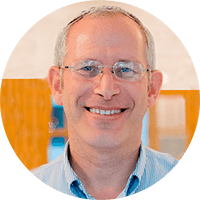

FROM THE EDITOR: SPRING 2024
In the 1970s, UJA’s rallying slogan was: “We are One.” Indeed, those were the days in which the Jewish community banded together over three core principles—commemoration of the Shoah, saving Soviet Jewry (and Syrian Jewry and Ethiopian Jewry), and Israel. The past fifty years have eroded each of those. People are tiring of the Shoah and are eager to move on from what Salo Baron termed the “lachrymose conception of Jewish history.” Soviet Jews left en masse in the 1990s with the fall of the Berlin Wall and the collapse of the Soviet Union, and Jews of Syria and Ethiopia have mostly migrated and resettled as well. And Israel, which is itself grappling with unparalleled polarization, no longer serves as a uniting factor for many North American Jews. All this leaves us, fifty years after the UJA banner, with a dramatic shift in punctuation:
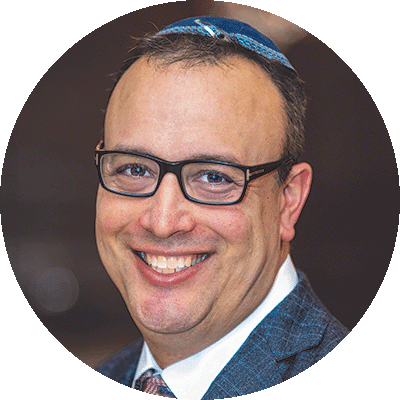

Accepting and Representing the Greater Jewish Community: an Interview with Jonathan Levy
We represent the Greater Toronto Jewish community, which means what we see in the Greater Toronto Jewish community is what we want to see here at our school. That can mean the whole range of diversity. It can be religious backgrounds, it can be a physical disability, it can be academic challenges. Of course, we do have limits in terms of what we can do and what we can’t do. We can’t be everything to everybody, but our goal is to be a diverse community that represents the Greater Toronto community. If you see it out there in the Toronto Jewish world, hopefully, you will see an element of that in our school as well,
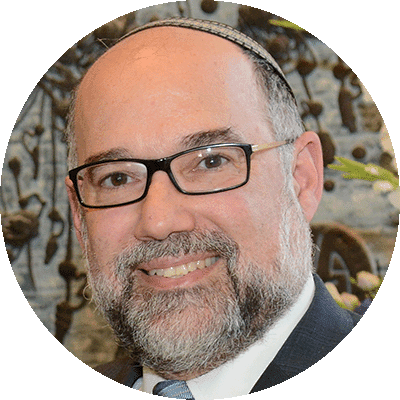

Realities and Opportunities of Diversity in an Orthodox School: an Interview with Leonard Matanky
I see diversity as a reality. Because our schools have always been diverse, the question is, how diverse should our schools be? On the one hand, we can talk about tribes, every tribe had its own personality, and those personalities didn’t always mesh so beautifully, like the way that Yissakhar and Zevulun are often presented. So, I see diversity as something that has always been present. I think the one challenge we have, when it comes to the question of diversity is the very same kinds of things that Jonathan Haidt talks about when he talks about the moral foundations theory and how we view that diversity within a religious institution. And so, our school has always been a diverse
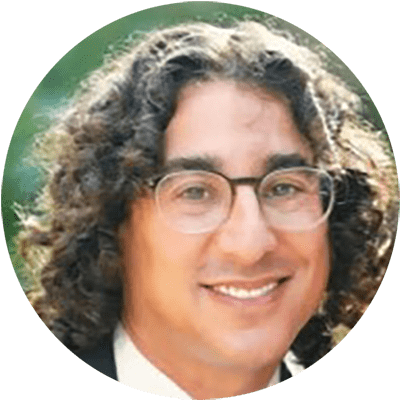

Aspiring to Expand our Circle of Inclusion: an Interview With Jon Mitzmacher
The opportunity is to ensure that our students come through their experience with an opportunity to learn about and learn with those who may be different than themselves, different across a variety of categories, whether it’s socio-economic, whether it’s learning differences, whether it’s with ideological differences, the value is in experiencing themselves as part of a diverse kehilla. The challenges, I would say, are divided into two broad categories. Most of the kinds of diversities that are challenging for schools boil down to economics;
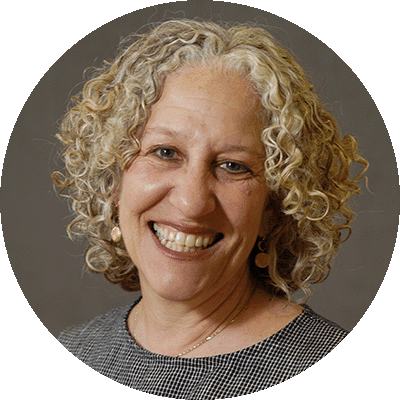

Embracing Diversity, Building a Stronger Jewish Future: an Interview with Nicole Nash
I’m going to start with opportunity because, to me, the opportunity outweighs any challenges. I’ve been in the field for a long time, and when you work in Jewish education, you meet so many children, parents, faculty, staff, and community members. I’ve had the privilege to see just how diverse the Jewish people are. When we are at our best, our diversity can be a real source of strength and celebration of Jewish peoplehood. When I say diversity, I think about it across ethnicity, race and nationality, Jewish identity and practice, interfaith family composition, sexual orientation, gender identity, life experience, socioeconomic status, worldviews—the list goes on and on.
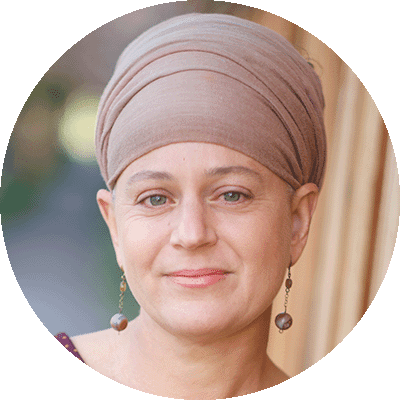

Ahavat Yisrael in a Small Jewish Community: an Interview with Tania Schweig
We’re a small community and our school has about 165 students. We’re quite stable in our enrollment and there are those who come and go because of the university. I feel like there’s a tremendous importance in small communities like ours and also a tremendous gift in these small communities. And I think our community has this special quality of ahavat Yisrael (love for our fellow Jewish people). I think that it’s important to say this because it is connected to the work of diversity. I really appreciate—like genuinely love—diversity. I like being in a place where it’s safe to be all kinds of things; it mirrors my own path. When I was in Pardes in Israel, I got to choose my path, I didn’t want to be in a box measuring up to someone else’s standards. For example, I wanted to be the person who’s becoming observant yet who is also asking questions about feminism.
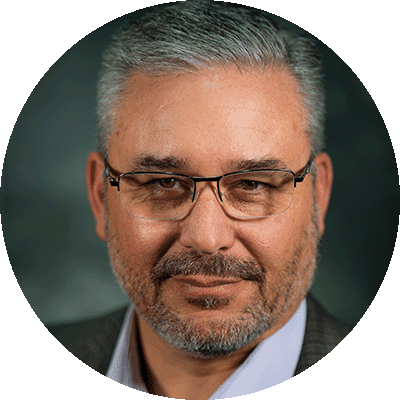

Diversity, Kindness, and Developing A+ Human Beings: an Interview with Mark Shpall
I try not to see it as a challenge. I really do see it as an opportunity because our students will continue to grow and go off to college, where they are going to be exposed to the real world, working with and interacting with people of all different backgrounds, ethnicities, learning abilities, appearances, etc. So we have the opportunity here to start or continue to process being open to that. We really try to do that from day one. In fact, we start school a week from today, but we are doing our retreats for our ninth and tenth graders starting now. Those retreats are all about the process of students opening themselves up to others in different ways and in different formats. We talk to our students about our core values, we want to talk about them so often that they start rolling their eyes at us because
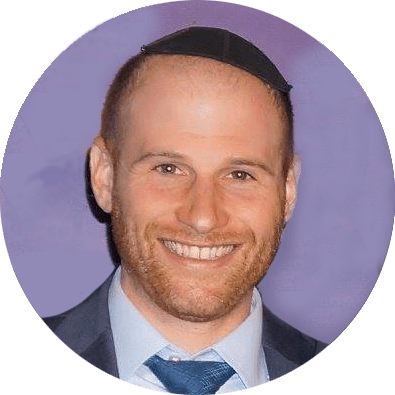

Compromise for the Sake of Community: an Interview with Sam Weinberg
I think that it’s important to remind ourselves that our diversity is defined in fairly narrow terms. We like to say that we are diverse, and that means that we span from traditional Conservative to right-wing Orthodox. Within that range, we like to celebrate our diversity, and that means that we can all learn from each other. That can be a challenge, since some in our community are very cautious about, if not openly hostile to, the idea of learning from those outside of their own group. It wasn’t always this way; I see more separatist trends developing in the last ten years, meaning that at least one segment of our population is growing increasingly insular. The community in general has become much more polarized, and some people only want to be with others who look and think like them.


